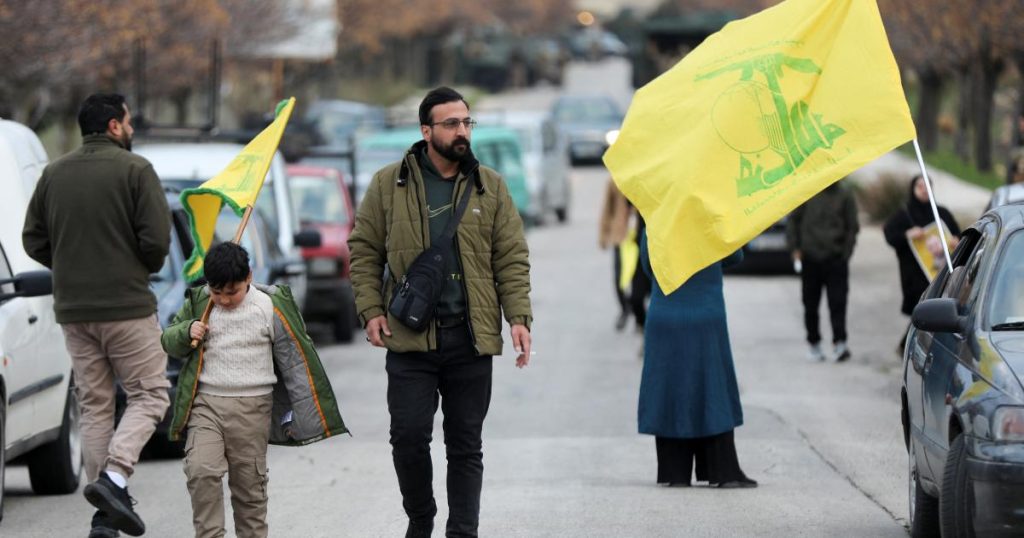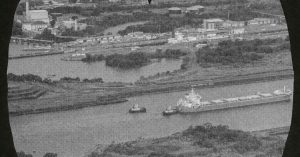For Hezbollah, these are trying times. After decades of being Lebanon’s predominant political and military organization, the group is reeling. During a yearlong war with Israel, it lost much of its military infrastructure. Its leadership ranks were decimated. Battered by conflict, in November, it signed a cease-fire agreement with Israel and pulled its forces from Lebanon’s south—Hezbollah’s traditional domain. Not long after, Bashar al-Assad’s regime fell in Syria, severing supply lines between the organization and Iran, its primary patron. Now Hezbollah is also at risk of losing the support of Lebanese Shiites, who make up its domestic base.
As is usually the case, Hezbollah’s loss is Lebanon’s gain. In fact, the group’s deterioration is giving Lebanese officials a once-in-a-lifetime opportunity to reassert their presence and restore their failed state. At least some of Lebanon’s leaders seem to ready to take advantage. Newly elected President Joseph Aoun, the former commander of the Lebanese Armed Forces, has said that government troops will move back into southern towns. He has promised that Hezbollah will finally disarm, becoming a normal political party rather than a shadow state with a full-blown military. The parliament’s newly elected prime minister, Nawaf Salam, has also promised to disarm Hezbollah and reestablish the Lebanese state’s authority. Together, Aoun and Salam could usher in a new era for their country and its long-suffering residents.
But although Hezbollah is down, it is not out. The group and its allies currently control 53 seats in Lebanon’s 128-member parliament, enough to sway important decisions. If they can work with the Druze leader Walid Jumblatt’s Democratic Gathering bloc and former Prime Minister Saad Hariri’s National Moderation party, they will have a majority of seats. The group can physically attack or threaten representatives who do not follow their wishes, as well as other domestic actors who stand in their way. No one should be surprised if Hezbollah resorts to such intimidation. If it has any hope of rebuilding, the group will need control of the state.
Aoun, Salam, and their allies can prevent Hezbollah from gaining the upper hand. But they will need to move quickly, while the organization is still dazed. They will have to make sure that Lebanon’s independent institutions, not Hezbollah’s, are in charge of rebuilding the country’s south. They will need a cabinet, central bank, and judiciary that are not beholden to the group. And they will need parliament to finally make clear that Hezbollah has no role in defending the country. If they succeed, Hezbollah might receive an electoral drubbing in the May 2026 parliamentary elections, sending it into a tailspin. But if they fail, the group will start to regenerate.
BAD BET
Hezbollah’s latest war with Israel began shortly after October 7, 2023, when Hamas launched its cross-border attack. To support its ally in Gaza, the Lebanese organization began firing missiles at Israel as soon as the Israeli Defense Forces moved into the strip. To Hezbollah (and its Iranian bosses), it was a rare opportunity to move further south than the group had in years, as well as to push Israel to stop striking Hamas.
Hezbollah’s leaders saw little downside to these attacks. They assumed that the IDF, occupied with Gaza, would want to avoid escalation in the north—especially given its group’s formidable supply of advanced missiles. But this assumption proved incorrect. On September 19, Israel detonated explosives that it had planted inside thousands of pagers used by Hezbollah’s operatives. The attack took at least 3,000 senior Hezbollah fighters and commanders out of commission. Next, Israeli intelligence officials successfully located and assassinated Hezbollah’s top leadership. It killed Ibrahim Qubaisi, the head of the group’s rocket and missile force. It assassinated all three of Hezbollah’s remaining living founders: Fuad Shukr, Ali Karaki, and Ibrahim Aqil. And on September 27, it killed Hassan Nasrallah—the group’s leader.
The death of Nasrallah was especially devastating for Hezbollah. Over the course of 40 years, Nasrallah had made the organization into a force to be reckoned with. He spearheaded its drive to push Israel out of Lebanon’s south in 2000, its victory over the country in 2006, and its general transformation into a regional player. No one else can match his stature. The few who came closest were all killed by Israel, as well. Ultimately, Hezbollah made deputy secretary general Naim Qassem its new leader. But Qassem is not as charismatic, popular, or shrewd as his predecessor. He has no clear plan for how to rebuild the organization. As a result, its morale has tanked. Divisions are forming within Hezbollah’s Shura Council, which is in charge of making Hezbollah’s military, security, and political decisions in coordination with Tehran.
Hezbollah may now be a liability for Tehran.
Hezbollah’s losses are not limited to its leadership. When Israel invaded southern Lebanon, the organization lost hundreds of soldiers and thousands of weapons. According to the IDF, Hezbollah has lost 80 percent of its precision and long-range missiles, going from 5,000 to fewer than 1,000. The group’s stockpile of 44,000 short-range rockets has been reduced to roughly 10,000. Hezbollah still retains much of its arsenal of light arms, more than 10,000 full-time fighters, and many more reservists. But without shrewd management and trained commanders, the organization will struggle to accomplish much on the global stage.
Hezbollah, of course, will again try to become a regional power. But doing so will prove difficult—and not just because it is starting from a weak place. With the fall of Assad, Hezbollah has lost an essential ally. Under his government, Hezbollah was able to earn billions of dollars from the Captagon trade; now, the drug’s production and smuggling is likely to be curtailed. More important, the Assad regime’s collapse has made it far more difficult for Iran to send resources to the organization. Without access to Syria, Hezbollah will need to smuggle in shipments via Lebanon’s own docks and airports. But these are now being strictly monitored by the Lebanese Armed Forces and the United States. This inspections regime has already blocked several Iranian delegations from entering the country, and it will likely stop more in the years ahead.
Iran may also be less inclined to help its reeling friend. The group’s embarrassing military setbacks render it weaker and thus far less useful. The Islamic Republic is also concerned about how thoroughly Hezbollah has been infiltrated by Israeli intelligence agents. If anything, Hezbollah may now be a liability for Tehran.
THE HOME FRONT
Hezbollah’s regional strength has been greatly diminished. But the group is still powerful within Lebanon itself. And in the forthcoming months, it is likely to do all it can to expand its domestic sway.
The group will work, in part, through its elected representatives, pushing Lebanon’s parliament to make friendly military, security, financial, and judicial appointments. Hezbollah will, in particular, want to choose the next army commander, who will oversee the implementation of the cease-fire agreement, so that he does not force the group to surrender its weapons (as the deal requires). It will want to make sure that the next head of Lebanon’s directorate of general security coordinates with Hezbollah’s own security chief, Wafiq Safa. It will want the next governor of the central bank and minister of finance to raid the state’s coffers on Hezbollah’s behalf, and it will generally seek control of the state’s economic decisions. Hezbollah will, in particular, want to maintain Lebanon’s shadow economy, which helps the group fundraise.
But Hezbollah will also resort to illegal measures. The group still has plenty of guns that it can use to menace officials who do not bow to its demands. Putting them to use would be in keeping with past precedent. When Syria withdrew its forces from Lebanon in 2005, for example, Hezbollah went on a killing spree to ensure that Assad’s departure would not weaken its hand, murdering former prime minister Rafiq Hariri. It assassinated other political figures, including former minister of economy Mohammad Shatah, journalist Samir Kassir, and minister of industry Pierre Gemayel. It also started many street clashes.
Hezbollah has been reduced from an army to a militia.
Hezbollah, however, may not have as easy a time as it once did with intimidation. The Lebanese Armed Forces and security services have gained ground on Hezbollah, challenging the group’s dominance. The Lebanese military is also less likely to roll over than it was before, if only because it is being monitored by the United States. Hezbollah, meanwhile, will have internal reasons to moderate. During the recent war, Lebanese Shiites sought refuge in the homes of Lebanon’s Christians and Sunni Muslims. If Hezbollah rewards these two communities by threatening them, attacking them, or otherwise running over their preferences, it might prompt anti-Shiite retaliation. That could, in turn, cost Hezbollah Shiite support—an essential pillar of its strength.
In fact, Shiite support for Hezbollah may already be waning. Hezbollah’s social contract with the community—the former provides the latter with security, political empowerment, and services and the latter provides the former with recruits and votes—has been on shaky ground for over a decade. The cracks first emerged in 2011, when Hezbollah began spending heavily to help Assad win the Syrian Civil War rather than to help its constituents. The tension increased in 2019, when anger over the country’s economic collapse (brought about by corruption) prompted some Lebanese Shiites to take to the streets with other Lebanese communities and chant for change. And it has reached new heights today, after Israel eviscerated Shiite towns and villages and killed thousands of people.
In the wake of this devastation, some Shiites may decide to cling even more tightly to Hezbollah, hoping that the group can provide them with much needed safety. But others will understand that the organization is actually the source of danger. Unlike in the 1980s and 1990s, when it fought off Israeli occupation, Hezbollah is now the aggressor. It attacked Israel, bringing Lebanon into a war no one else sought. It then lost, emerging weaker. That fact will become more and more apparent to Shiites as they try to rebuild and find that Hezbollah is unable to dole out compensation. Indeed, many of Hezbollah’s constituents have yet to receive any of the reconstruction money they were promised by the organization.
FINISH THE JOB
On its present course, Hezbollah is headed for an electoral reckoning. But to ensure its decline, Aoun and Salam will need to cut it off from funds over the next year and fight back against its political machinations.
This means, first and foremost, depriving Hezbollah of a role in south Lebanon’s rebuilding. In 2006, much like today, Hezbollah fought a war with Israel that left Lebanon’s south in ruins and raised serious questions about the organization. But Iran then flooded Hezbollah with cash, helping it take charge of reconstruction and thus fix its reputation. Today, Iran lacks the funds to help Hezbollah in the same way, giving the Lebanese state an opportunity to oversee the whole process. It must seize it. Every penny of aid should go from the government straight to beneficiaries—not through the Council of the South or any other Hezbollah-dominated bodies. By doing so, Aoun and Salam can show Shiites that they do not need Hezbollah for protection. It can prove that Shiites, too, are Lebanese citizens, and that Lebanese state institutions can keep them safe.
Aoun and Salam will also need to stymie Hezbollah’s efforts to select the next army commander, central bank governor, and head of general security and to fill various high-rank judicial positions. The next cabinet should, likewise, make sure its ministerial statement—where it outlines state policy and strategy—is in line with Aoun’s pledges. The cabinet must exclude Hezbollah officials and their affiliates from important positions and push the judiciary to hold the organization accountable if it uses its arms against the Lebanese people. If parliament balks at doing so, Aoun and Salam have the constitutional authority—and a moral obligation—to form a cabinet without the body’s approval.
International actors must help the president and the prime minister. Foreign pressure could ensure that the ministerial statement does not declare (as it usually does) that Lebanon’s security relies, in part, on “the resistance”—code for Hezbollah. International actors, especially Saudi Arabia and the United States, should insist on monitoring the reconstruction process. And these two countries must pressure their local partners to fill government vacancies with people committed to taking on Hezbollah. If Lebanon wavers, Washington can threaten to sanction obstinate officials and withhold aid. Doing so will likely induce compliance; Lebanon cannot afford to be cut off.
Forever weakening Hezbollah will still be a fraught process, and it could take years. But for once, the goal is attainable. Hezbollah has been reduced from an army to a militia. It is cut off from international support, and it is struggling to maintain domestic backing. The Lebanese Armed Forces are capable of ensuring order in ways that Hezbollah now can’t. If Lebanon’s leaders muster the political will, they can put the group in its place. The only question is whether they have what it takes.
Loading…









